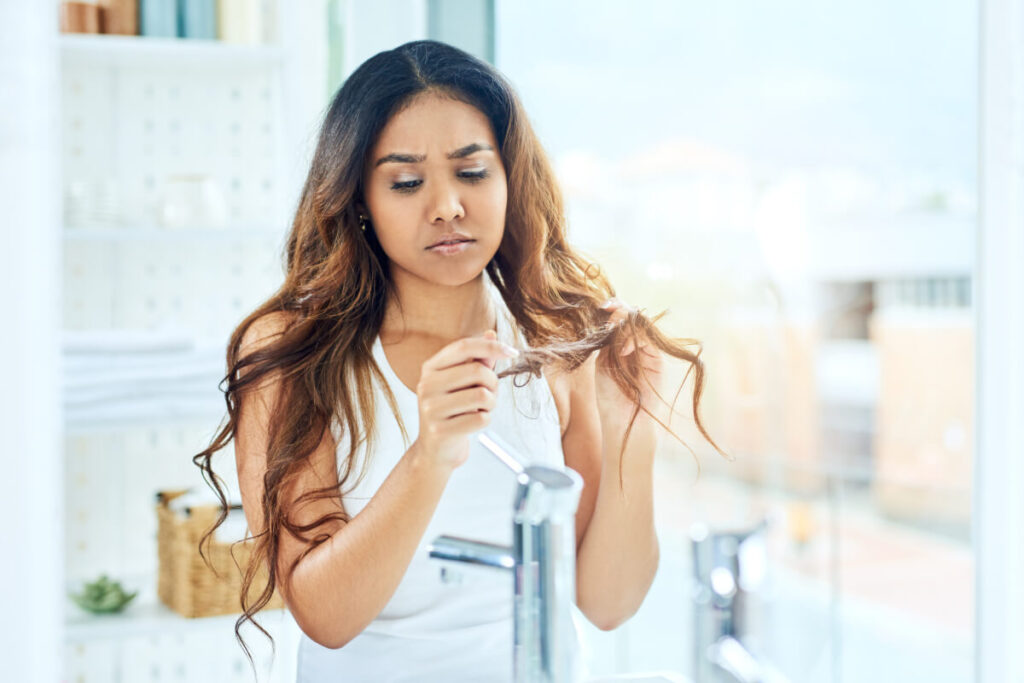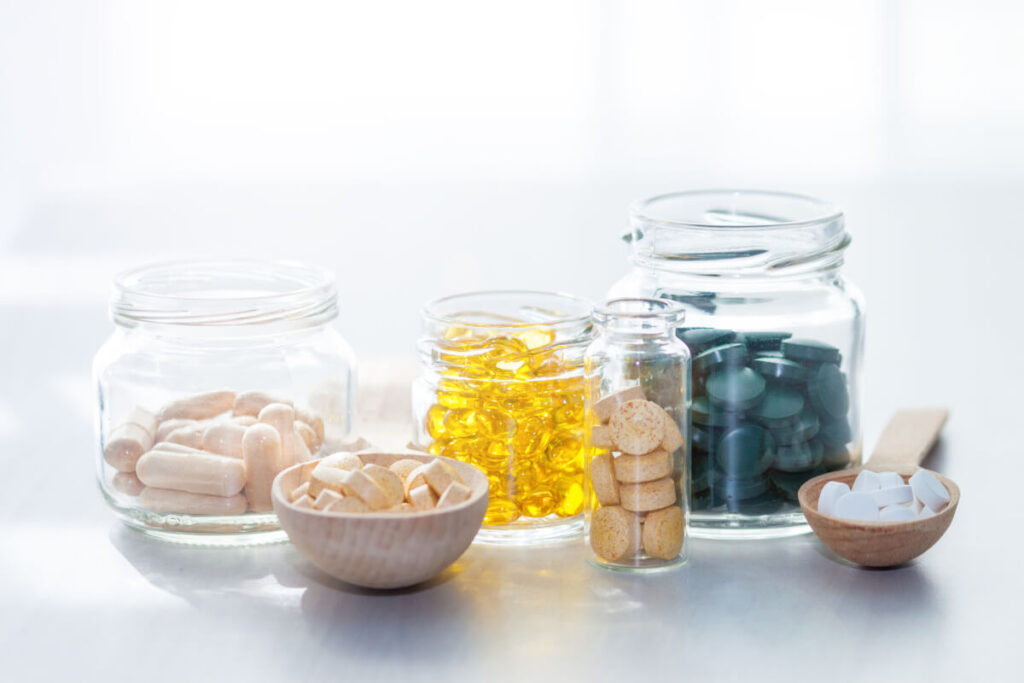Dietary supplements are a staple in many people’s diets, especially those with nutritional deficiencies. Vitamins and minerals such as biotin, vitamin A, and zinc are known to help with dry, brittle, and slow-growing hair. While some claim to notice an improvement in their hair health, most would just be skeptical or attribute their healthier hair to the food they eat or the haircare products they have.
So is taking supplements for your hair useless? Based on testimonials and smaller studies, there are those who claim to get healthier hair by taking supplements. However, the results aren’t the same for everyone because of factors like genetics, medications you take, or hormonal changes, among other reasons. Here’s what you should know about hair supplements.
Is Taking Supplements for Healthy Hair Useless?
Taking supplements for hair isn’t necessarily useless. If you have a vitamin or mineral deficiency, then you’re most going to benefit from taking supplements. For many people, the root cause of their poor hair health is because they don’t have the nutrients to promote healthy hair and the substances and bodily functions needed to keep it healthy. By providing your body the additional nutrients it needs to function – assuming there is no other underlying cause like genetics and medical condition – then you’re likely to see improvement.
However, supplements don’t magically give you healthy hair. It can take months or even years before you see noticeable changes, depending on several factors such as how it treats your hair. Some supplements affect your existing hair by providing enough hydration to prevent dry and brittle hair. This can take several months to show visibly healthy hair.
On the other hand, other supplements treat your hair through keratin production, which are the building blocks of hair structure. This may not fix existing hair, but new hair that grows can be stronger and have better texture. Considering that the average person grows half an inch of hair every month, it can take several years for new hair to grow to shoulder length and replace your older hair.
The effects of dietary supplements are more likely to appear on those with nutritional deficiencies. Studies show decreased rates of symptoms like poor hair quality when those with deficiencies take supplements. For healthy people who don’t have deficiencies, however, there isn’t enough substantial evidence from studies of people without supplements that suggest taking supplements will provide you with the same results.
If your body is getting enough nutrients from a balanced diet that has every key nutrient, it has enough nutrients to address all the bodily functions that require it. So, adding supplements to your diet may not result in any visible changes to your hair. Some people who take supplements might claim to see changes, but this is mostly anecdotal evidence. There isn’t enough scientific evidence, clinical trials, or review of studies to support that taking supplements without a deficiency can result in the same hair improvement.
Causes of Poor Hair Health

If you want to take supplements for healthy hair, your best first step is to talk to a healthcare professional and see if your body has a nutritional deficiency that affects your hair. That way, you’ll know which of the vitamin or mineral supplements is the right one to take.
However, you may find that you have weak, brittle, and dry hair prone to hair loss and slow hair growth even without a nutritional deficiency. If this is the case, then you might have an underlying condition that’s causing poor hair health. Supplements can’t affect your hair if this is the case. Some causes for your hair’s condition include:
- Malnutrition – varied diets can easily meet the recommended daily allowance of nutrients. Some, however, may not have a good diet or have conditions that prevent them from absorbing enough nutrients even from a healthy meal.
- Hereditary hair loss – both men and women can be prone to androgenic alopecia. This means you have genes that will cause your hair follicles to eventually shrink and stop growing hair. This can happen as early as your teenage years but can also start later in life. There is no cure for genetic hair loss, but supplements and prescription medicines may slow down the process.
- Pregnancy – women who have recently given birth may experience hair loss. During your pregnancy, your increased estrogen levels have resulted in more hair follicles and faster hair growth. After birth, your estrogen levels return to normal, so the excess hair can shed away. Pregnant women are also prone to nutrient deficiencies, which is why it’s recommended they take prenatal vitamins.
- Medications and medical treatment – Some medicines and treatments (like cancer treatments) can cause hair loss. Supplements can be ineffective while undergoing treatment or taking medication, but there may be some effect after.
- Hair damage – this can be caused by heat treatments or excessive or improper use of harsh chemicals. Some hair treatments can fix your hair or at least prevent it from looking dry, but in severe cases, it may be best to just trim away the hair damage and wait for your hair to grow back.
- Medical conditions – stress, autoimmune diseases, and thyroid conditions can affect hair loss, which can be one of many severe symptoms from your condition. You’ll need to seek alternative treatment before seeing better results.
Supplements Associated with Healthy Hair

If you’re looking for supplements that could improve your hair’s health and condition, these are the essential vitamins and minerals you could consider for benefits for hair health.
1. Biotin
Also known as vitamin B7, this is a water-soluble vitamin that assists the other vitamin B nutrients in converting nutrients into energy. It’s unknown exactly how biotin affects healthy hair, but researchers know that biotin is one of your body’s essential vitamins that plays a crucial role in protein synthesis to create keratin, which can improve your hair’s structure and strength.
2. Vitamin A
A water-soluble vitamin that promotes healthier hair follicles and sebum production. Sebum keeps your hair and scalp moist, which can prevent dandruff, irritation, and dry and brittle hair that’s prone to breakage. Lacking vitamin A can cause hair loss, but so can having hypervitaminosis A, which is an excess amount of vitamin A in the body.
3. Vitamin D
It’s unknown how these vitamin supplements are associated with hair growth. However, those with vitamin D deficiencies are more prone to hair thinning and hair loss. Taking vitamin D supplements can keep your hair follicles healthy.
4. Vitamin C and E
Vitamin C and vitamin E are antioxidant vitamins, which means they protect your hair from UV rays and free radicals,or the molecules that cause aging. If left untreated, these can cause oxidation and premature aging that makes your hair dry and brittle. On top of your hair, doses of vitamin E and vitamin C can provide immunity-boosting effects.
5. Collagen
Though your body can naturally produce collagen, collagen supplements may have some benefits to aid hair health. Collagen is essential for protein synthesis to create keratin, a protein that builds the structure of hair, skin, and nails. It’s also another type of antioxidant supplements that can prevent damage from free radicals.
6. Zinc
Zinc regulates dihydrotestosterone, a substance in your body that can cause hair loss. Its also an essential nutrient for tissue growth and repair and can make your hair stronger from its roots. However, while zinc is one of the beneficial nutrients to help with hair issues, too much zinc can also be harmful as excessive amounts are associated with hair loss.
Beauty Products, Wellness Tools, and More at FACE Med Store
Are supplements good for improving the state of your hair? They can be, especially if you have a nutrient deficiency that’s causing hair loss and poor hair quality. There may be some merit to taking supplements even when you have a healthy diet and don’t have a deficiency, but keep in mind that there may be no effects on your hair if your body already has enough nutrients to function to keep your hair naturally healthy.Hair supplements may also not be needed if you have a healthy lifestyle that favors your hair health.
FACE Med Store is a beauty and wellness online store that offers supplies, tools, and other products made for both dermatological and everyday use at competitive prices. Our wide range of options are great for aesthetic centers looking to reduce operational and supply costs or the everyday user looking for great deals on professional-grade beauty tools. Visit our online store today.






